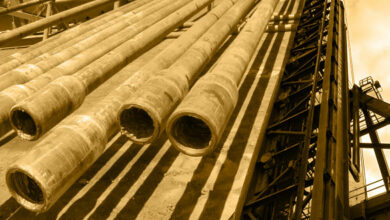IADC PROVIDES TESTIMONY
Invited by Rep. Kevin Brady of Texas, IADC senior vice president – government affairs Brian Petty testified 21 July before the US House Ways and Means Subcommittee on Trade in his capacity as chairman of the federal advisory committee on automotive equipment and capital goods (ITAC 2). The subcommittee is examining the federal advisory system.
Organized labor, environmental groups and “consumer advocates” have been agitating to join the industry committees, but Mr Petty pointed out that industry committees were created to give unvarnished advice on US trade policies. Their presence could chill free and frank discussion, as well as become a disincentive to recruiting new members and retaining existing members. Organized labor and the environmentalists also already have their own trade advisory committees.
INDIA SETS NEW BUDGET
In its budget for the tax year ending 31 March 2010, the Indian government is giving tax incentives to natural gas production in new fields where oil production is now favored under the existing tax regime. There was no change in the service tax under litigation by IADC except to keep the tax at a 10% rate. But the definition of “India” was changed, extending the service tax jurisdiction to the 200-mile offshore limit.
The Central Board of Direct Taxes also will be empowered to establish “safe harbor” rules to reduce transfer pricing disputes. The board will establish a dispute resolution mechanism to expedite settlements outside the judicial system. Industry welcomes both changes.
SPCC IMPLEMENTATION
On 19 June, the US Environmental Protection Agency issued the Final Rule on Spill Prevention, Control and Countermeasure Plans establishing 10 November 2010 as the date by which all facilities must prepare or amend their SPCC Plans. The owner or operator of an existing mobile onshore or offshore facility will be required to maintain an SPCC Plan and must make any necessary amendments and implement them on or before the set date. For operations that begin after 10 November 2010, a plan must be in place prior to beginning operations.
SEMS REQUIREMENTS
The MMS issued a proposed rule on 17 June 2009 requiring operators to develop and implement a safety and environmental management system (SEMS) to address oil and gas operations on the OCS. It will consist of four parts: hazards analysis, management of change, operating procedures and mechanical integrity. Though not directly addressed in this rulemaking, MODUs will likely feel its effect via the operator’s accountability for contractors and subcontractors.




